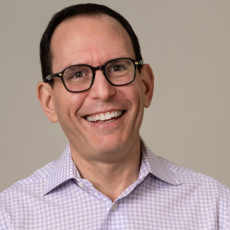Congratulations on your appointment as CEO. What do you bring to PTC Therapeutics?
For those of you not familiar with PTC Therapeutics, we are a global biopharmaceutical company that was founded 25 years ago with the mission to discover, develop, and commercialize innovative therapies for patients with rare disorders. This mission has remained unchanged. Over the past two decades we have made a number of pioneering and impactful contributions including pioneering RNA directed therapies, establishing the field of drug development for Duchenne muscular dystrophy, discovering and developing in collaboration with the SMA Foundation and Roche the first ever small molecule splicing agent—Evrysdi, which is now the global leading SMA therapy, and successfully developing the first ever brain administered gene therapy. As CEO, my background as a trained physician and professor of surgery and public health, combined with my experience in both basic and clinical science, equips me to lead PTC as we build upon our proud legacy. My focus in my first year as CEO has been on solidifying our foundation for future success through important leadership changes, R&D focus, and strengthening our financial position to ensure we can continue our pioneering work for the next 25 years.
Could you illustrate the impact of a disease you treat on a patient's life and how your therapies improve it?
At PTC, our goal is to develop transformative therapies for patients with rare disorders who desperately need safe and effective treatments. We are working in rare diseases that result in severe morbidities and often lead to early death.
For example, our gene therapy for the rare disease AADC deficiency, has allowed children who were previously unable to spontaneously move to begin to lift their heads, crawl, and walk, transforming their lives.
We are developing potential transformative therapies for a number of diseases including Duchenne muscular dystrophy, PKU, Friedreich ataxia and Huntington’s disease. Each therapy we develop is aimed at significantly improving, if not transforming, the lives of patients with these debilitating diseases. Another example is our therapy sepiapterin, being developed for children and adults with the rare metabolic disease PKU. Recent data from clinical studies have shown promise in allowing patients to liberalize their diets significantly, enhancing their quality of life and reducing severe neurological and neuropsychiatric issues.
What are the main financial challenges for a company focusing on rare diseases, and how do you balance the sheets while remaining economically viable?
Developing innovative therapies for rare diseases is costly, especially when pioneering treatments for conditions without existing therapies. The path from discovery to approval involves significant laboratory expenses, extensive clinical trials, and overcoming the high probability of failure. Managing these financial challenges requires a strategic approach, including focusing on areas where we excel, streamlining our R&D efforts, and ensuring we have the necessary financial resources. Our strategy involves focusing our research on splicing and ferroptosis and inflammation, areas where our expertise gives us a unique advantage. By concentrating on these platforms and therapeutic areas where we have significant expertise, we can more efficiently use our resources and pursue partnerships that leverage our strengths in other fields.
Can you discuss the changes made in the past year regarding the people at PTC Therapeutics and how this aligns with your strategic goals?
The transition involved making difficult decisions to right-size the organization, which included workforce reductions and discontinuing programs with low probabilities of technical and/or commercial success. These steps were taken to focus our resources on areas where we could have the most impact. By becoming leaner and more focused, we maintained our critical infrastructure, allowing us to remain strong in research, development, and global commercialization. This more focused approach ensures we are better positioned to achieve future success, leveraging our strengths without being spread too thin.
How has the market reacted to your strategic changes, and how confident are you in the direction PTC Therapeutics is heading?
I am confident we are moving in the right direction, as evidenced by the positive market response and the strategic decisions made to position us for future success. The restructuring process was challenging, especially given our reliance on our talented teams, but these were necessary steps to adapt to the evolving financial landscape and the high costs of innovating in rare disease treatment. By focusing our efforts, retiring expensive debts, and strengthening our balance sheet, we've laid the groundwork for advancing our pipeline of promising therapies. Our strategic focus and financial restructuring have positioned us well for continued growth and success.
Looking 25 years into the future, what is your vision for PTC Therapeutics?
Our patient-focused mission has guided us for the past 25 years and will continue to do so. We aim to maintain our pioneering spirit, tackling hard problems with innovative solutions. By staying true to our mission, we anticipate continuing to bring meaningful therapies to patients, leveraging our expertise in splicing, ferroptosis and inflammation, and beyond. Our success in addressing significant challenges in rare diseases not only showcases our commitment to making a difference in patients' lives but also sets the stage for future breakthroughs. Our vision for the next 25 years is to build on our legacy of innovation and continue to be at the forefront of solving complicated problems so that we can continue to deliver transformative therapies to patients in need.






